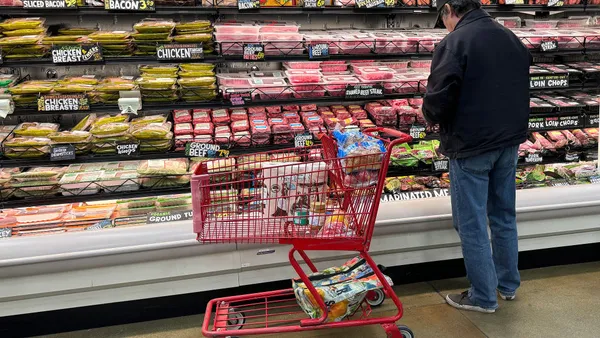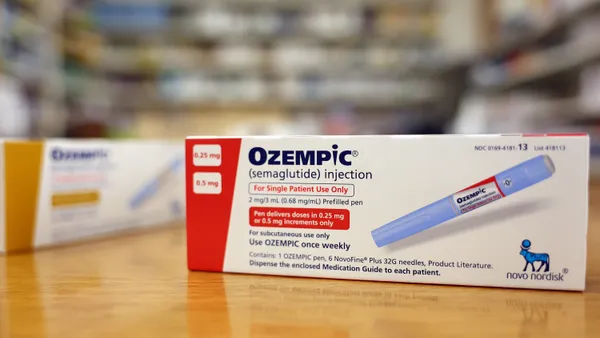Dive Brief:
- Despite predictions that an Amazon-owned Whole Foods would cut deeply into its sales, Sprouts Farmers Market has held its own, according to Markets Insider. According to a UBS report cited by the publication, Sprouts has reported very little share loss in markets where it overlaps with Whole Foods.
- UBS analyst Mark Carden notes that Sprouts' store locations, situated mostly in middle income suburbs, are well differentiated from Whole Foods, which tends to put stores in less price-sensitive neighborhoods. Carden also noted that Whole Foods prices remain high despite discounts implemented for Amazon Prime members.
- "Here, stronger brand equity has helped [Sprouts] with new store openings, to the point where its stores in new markets are opening at nearly the same level as those in its existing markets," Carden wrote in his note. "This has allowed the company to spread its new stores across a wider geographic base more quickly, lowering cannibalization.
Dive Insight:
As Whole Foods moves more mainstream and its prices remain high despite selective cuts for Amazon Prime members, specialty players are finding room to thrive.
So despite an initial 8% of regular Sprouts customers defecting to Whole Foods in August last year, according to one store traffic report, it appears the novelty factor has worn off and Sprouts customers are pouring back in.
This is good news for the Phoenix-based grocer, which is on an aggressive growth path. Unlike many conventional grocers, including Kroger, which have slowed their store growth lately amid intense competition and pricing pressure, Sprouts plans to expand by around 30 stores a year, with the goal of growing its current count of around 300 locations to as many as 1,200.
As UBS analyst Carden points out, Sprouts is targeting different neighborhoods than Whole Foods and other upscale specialty players. It also stands out on assortment, with a focus on produce, which comprises around 25% of the retailer’s total sales. To keep prices down and quality up, Sprouts sources and distributes all of its fresh fruits and vegetables, giving the grocer two to three days of additional freshness compared to other grocers, and better prices than many conventional players.
Sprouts is also focusing more on its prepared food offerings, with an enhanced deli program positioning stores as meal destinations. The grocer is boosting its private label assortment, too, with a focus on unique and healthful products. During the most recent financial quarter, store brand revenues increased more than 25% while sales of existing private label products are accelerating, CEO Amin Maredia noted during an earnings call.
On the e-commerce front, Sprouts continues to roll out Instacart home delivery, with 190 stores now offering the service. The two companies struck a deal earlier this year, and in May the retailer ended its delivery relationship with Amazon and its Prime Now service, which is being rolled out across competing Whole Foods stores. Sprouts officials have said home delivery expands the reach of stores past the usual five-minute drive time and has boosted sales productivity.
As analysts have pointed out, Whole Foods needs to bring down its prices in order to remain competitive. Amazon's discounts haven't done much to change Whole Foods' overall prices. Recent studies have shown the companies’ price cuts have boosted store traffic without actually bringing down prices overall. According to research firm Gordon Haskett, Whole Foods’ prices are just 1.1% lower than before Amazon acquired the chain.
In an industry where consumers are always conscious of price and increasingly conscious of how their diet impacts their health, Sprouts is meeting that demand. Until Whole Foods steps up to the same playing field, there seems to be little danger of Sprouts and others like it suffering.








